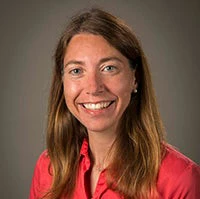Lydia Olander directs the Ecosystem Services Program at the Nicholas Institute for Environmental Policy Solutions at Duke University. She leads the National Ecosystem Services Partnership, supporting efforts to integrate ecosystem services into decision making, and studies environmental markets and mitigation, including forestry and agricultural based climate mitigation; wetland, stream and endangered species mitigation; and water quality trading. She also serves on the U.S. Army Corps of Engineers Environmental Advisory Board and the secretariat of The Bridge Collaborative. She has published in a wide range of professional journals including Integrated Environmental Assessment and Management, Ecosystems, Biogeochemistry, Soil Biology and Biochemistry, Forest Ecology and Management, Earth Interactions, and Environmental Research Letters, Global Environmental Politics, Environmental Management, The Environmental Law Reporter, Current Opinion in Environmental Sustainability, Advances in Agronomy and Global Change Biology, Frontiers in Ecology and the Environment, and Ecosystem Services.
Prior to joining the Nicholas Institute she spent a year as an AAAS Congressional Science and Technology Fellow working with Senator Joseph Lieberman on environmental and energy issues. Before that she was a researcher with the Carnegie Institution of Washington’s Department of Global Ecology, where she studied the biogeochemical impacts of logging in the Brazilian Amazon and utilized remote sensing to extrapolate regional impacts. She received her PhD from Stanford University, where she studied nutrient cycling in tropical forests, and earned a master’s degree in forest science from Yale University.
Prior to joining the Nicholas Institute she spent a year as an AAAS Congressional Science and Technology Fellow working with Senator Joseph Lieberman on environmental and energy issues. Before that she was a researcher with the Carnegie Institution of Washington’s Department of Global Ecology, where she studied the biogeochemical impacts of logging in the Brazilian Amazon and utilized remote sensing to extrapolate regional impacts. She received her PhD from Stanford University, where she studied nutrient cycling in tropical forests, and earned a master’s degree in forest science from Yale University.

